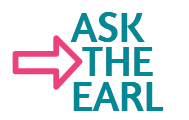Hey, future real estate agents! Embarking on your journey into the realm of real estate, eh? Well, you’re about to dive into one of the most exhilarating industries out there. But before you can start closing deals and staging homes, there’s a little hurdle you need to jump over—the real estate exam. Now, if you’re like most folks, tests might not be your jam, or maybe you’re the type who breezes through them. Either way, you can’t sidestep this one.
So, how tough is this beast? Let’s just say, it’s not a walk in the park. But fear not! With the right strategy, you’ll not only tackle it; you’ll ace it. And that’s exactly what we’re here to talk about.
We’ll cover:
- The real scoop on the real estate exam’s difficulty
- A step-by-step game plan to ensure you’re ready
- Post-exam steps to launch your stellar career
And for those who love a good visual or auditory learning session, don’t forget to check out our video or podcast for a deep dive into these topics!
Demystifying the Real Estate Exam
Curious about the real estate exam’s level of difficulty? It’s designed to filter out those not quite ready to take on the agent role. Nationally, about half the folks who take it pass. Various factors can contribute to not passing, but the key is proper preparation to avoid re-taking it (and yes, paying that fee again).
Here’s a step-by-step guide to ensure you’re more than just prepared—you’re confident and ready to conquer.
The Ultimate Prep List for Aspiring Real Estate Professionals
1. Sign Up for a Pre-Licensing Course
First things first, a pre-licensing course is your golden ticket. It’s not just about cramming information; it’s about understanding what it takes to thrive in real estate in your specific state. My top recommendation? Go for a course that’s tailored to your state’s requirements. And hey, if you’re juggling a busy schedule, online real estate schools are your best friend. They offer flexibility without compromising on the quality of your prep.
2. Practice, Practice, Practice
Taking practice exams is like the dress rehearsal before the big show. They give you a taste of what to expect and highlight areas where you might need a bit more focus. If your prep course offers practice tests (which it should), make good use of them. The goal here is to walk into the actual exam feeling like you’ve been there before.
3. Master Test-Taking Strategies
Knowing the material is one thing, but knowing how to take the test? That’s another. Here are a few strategies to keep in your arsenal:
- Tackle the easy questions first.
- Use the process of elimination.
- Trust your first instinct; don’t overthink.
- Skip and revisit tough questions if you’re stumped.
- Keep calm and carry on; stress won’t help you recall information.
4. Notes Are Your Best Friends
Make notes, flashcards, voice memos—whatever works for you. Review them whenever you get a chance. The trick is to keep the information fresh in your mind without burning out.
5. Self-Care Isn’t Just a Buzzword
The night before the exam isn’t the time for a cramming marathon. Get a good night’s sleep, eat well, and approach the day with a clear mind. Trust me, it’ll make a world of difference.
6. It’s Not a Sprint
Remember, the exam isn’t a race. Focus on doing your best within the allotted time, not on finishing first.
7. Keep the Vibes Positive
Maintain a positive mindset. It’s amazing how much of a difference it can make in your performance. And if things don’t go as planned, it’s not the end of the road. Reflect, regroup, and retake if necessary.
Bonus Tip 8: Leveraging the Power of Mentorship for Real Estate Exam Success
Find a Mentor: The Untapped Resource for Passing the Real Estate Exam
While studying hard and mastering test-taking strategies are crucial to passing the real estate exam, there’s another invaluable resource many overlook: mentorship. Securing a mentor, especially one with experience in the real estate field, can significantly elevate your preparation efforts and overall understanding of the industry.
Why a Mentor Matters:
- Real-World Insights: A mentor brings a wealth of real-world experience and can offer practical insights into the industry that textbooks and courses might not cover. They can share personal anecdotes of challenges they faced and how they overcame them, giving you a deeper understanding of what to expect once you’re licensed.
- Tailored Advice: Every aspiring real estate agent has unique strengths and weaknesses. A mentor can provide personalized advice tailored to your specific needs, helping you focus on areas that will most benefit your exam prep and future career.
- Networking Opportunities: Mentors can introduce you to their professional networks, offering you valuable connections that can be beneficial both for passing the exam and for your career development thereafter.
- Emotional Support: Preparing for the real estate exam can be stressful. Having a mentor means you have someone to turn to for encouragement and support, keeping you motivated and focused on your goals.
Finding Your Mentor:
In today’s digital age, mentorship doesn’t have to be limited by geography. Online platforms and social networks are teeming with experienced professionals eager to guide the next generation of real estate agents. Here are a few ways to find an online mentor:
- Real Estate Forums and Online Communities: Websites like BiggerPockets or LinkedIn groups dedicated to real estate can be excellent places to connect with potential mentors.
- Professional Organizations: Many real estate associations offer mentorship programs. Joining one can be a direct path to finding a mentor who’s invested in helping you succeed.
- Social Media: Don’t underestimate the power of simply reaching out to someone whose work you admire on platforms like LinkedIn, Instagram, or Twitter. Many professionals are open to sharing their knowledge and might be willing to mentor you or provide advice.
Remember, a mentor doesn’t just help you pass the exam; they can guide you through the initial stages of your career, offering insights that only come with experience. When seeking out a mentor, be clear about your goals, respectful of their time, and open to learning. This relationship can be one of the most valuable tools in your real estate journey.
After the Applause: Your Next Steps Post-Exam
Passed the exam? Congrats! Welcome to the exciting world of real estate. Now, it’s time to think about finding a sponsoring broker, continuing your education, and laying the groundwork for a successful career.
Real Estate Exam FAQs: Quick Hits
- Online Exams? Mostly in-person, but some states offer online options.
- Format? Yes, it’s multiple-choice.
- Cost? Typically under $50.
- Where to Take It? Check out PSI Exams Online, AMP Testing Center, or Pearson Vue.
- Duration? Between 1.5 to 3.5 hours, depending on your state.
Final Thoughts
Tackling the real estate exam might seem daunting, but with the right preparation and mindset, it’s entirely within your reach. And remember, DigitalAgentShow.com is here to guide you through every step of your real estate journey, from acing your exam to closing your first sale.
For those embarking on this journey, consider The CE Shop for your pre-licensing and exam prep needs. It’s a fantastic resource tailored to help you succeed on your real estate exam and beyond.
So, gear up, study smart, and get ready to make your mark in the real estate world. The future is bright, and it’s yours for the taking!
FAQ Section: Navigating the Real Estate Exam with Confidence
1. What Makes the Real Estate Exam Challenging?
The real estate exam is designed to ensure that only those who have a thorough understanding of real estate principles, laws, and practices become licensed agents. Its challenging nature stems from the wide range of topics covered, including property ownership, land use laws, finance, and contracts, as well as state-specific regulations. The exam’s format, which typically includes a mix of multiple-choice questions that test both your knowledge and application of concepts, also contributes to its difficulty.
2. Can I Take the Real Estate Exam Online?
While most states require you to take the real estate exam in person at a designated testing center, such as PSI Exams Online, AMP Testing Center, or Pearson Vue, there are exceptions. Some states have begun offering online proctored exams, especially in response to the COVID-19 pandemic. It’s important to check with your state’s real estate commission for the most current information regarding online exam options.
3. How Many Times Can I Retake the Real Estate Exam if I Don’t Pass?
Most states allow you to retake the real estate exam multiple times if you don’t pass on your first try. However, there may be a waiting period between attempts and a limit on the total number of attempts allowed. Additionally, you may need to pay the exam fee each time you retake it. Check with your state’s real estate commission for specific rules and regulations regarding exam retakes.
4. How Should I Prepare for the Real Estate Exam?
Preparation is key to passing the real estate exam. Begin with a comprehensive pre-licensing course that’s specific to your state’s requirements. These courses not only cover the necessary material but also teach test-taking strategies. Practice exams are invaluable for familiarizing yourself with the exam format and identifying areas where you need further study. Reviewing notes, focusing on challenging topics, and taking care of your physical and mental well-being are also crucial steps in your exam preparation strategy.
5. What Happens After I Pass the Real Estate Exam?
Passing the real estate exam is a significant milestone, but it’s just the beginning of your career as a real estate professional. The next steps typically involve applying for your real estate license with your state’s real estate commission, finding a sponsoring broker to work under, and considering additional certifications or education to specialize in certain areas of real estate. Networking with other professionals, continuing to learn about the industry, and beginning to build your client base are also key activities as you start your new career.
Remember, the journey to becoming a successful real estate agent is a marathon, not a sprint. Passing the exam opens the door to a world of opportunities in the real estate industry, and with dedication, continuous learning, and a positive mindset, you can build a rewarding career.







